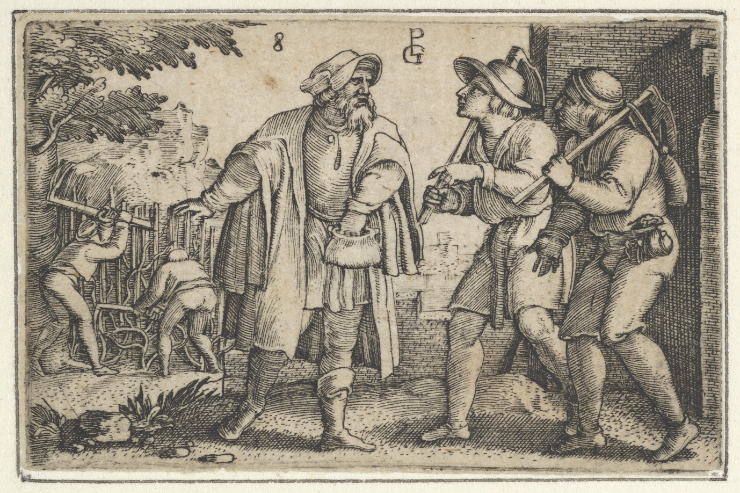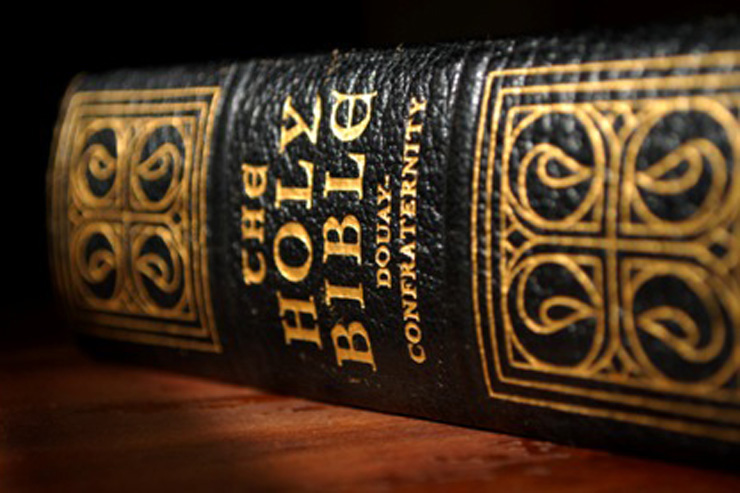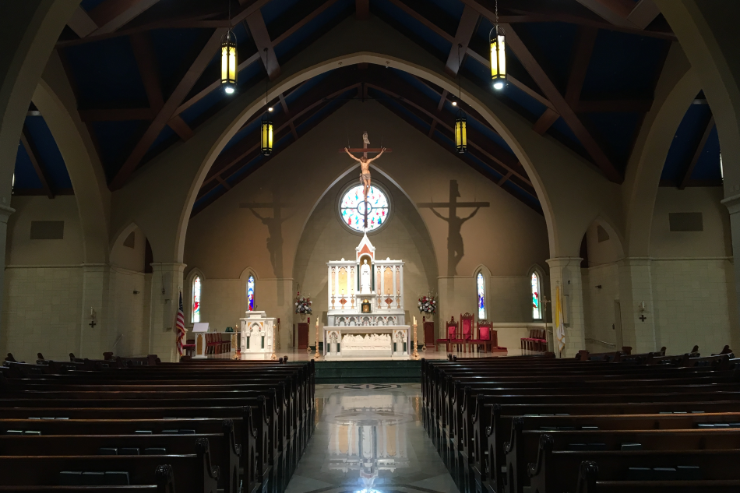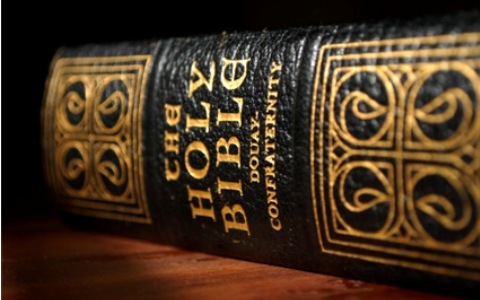
“The Parable of the Father and His Two Sons in the Vineyard” by Georg Pencz [CC0], via Wikimedia Commons
A Faith Disconnected from Life
All of us who read these pages, I hope and pray, desire to deepen our love of God, improve our prayer life and grow in our relationship with the Lord. But too often we tend to separate our faith from our daily life and this prevents the growth we seek.
The Second Vatican Council identified this disconnect between the faith we profess and the life we live as one of the grave errors of our time.
This disconnect between faith and life can take two forms. On the one hand, some practice their faith only when they are at Sunday Mass or other church-related occasion. On the other side, some focus so exclusively on heaven that they neglect their duties and responsibilities in this world.
We have been placed in this life and this world—a place of pilgrimage through which we travel—for a reason. It is our place of formation where we seek, by God’s grace, to become perfected in love. So instead of separating faith from life, we should integrate our faith into all parts of life, allowing the Lord to guide us in all the ordinary moments of daily living.
In our Gospel today, Matthew recalls an encounter Jesus had with the elders and chief priests near the end of his three years of public ministry. He tells them a parable of a man and his two sons.
To understand this encounter, we need to remember how Jesus, when he first began his ministry, would encounter people, many of whom were suffering, as he moved through the streets and villages bringing the good news. He forgave sins and healed the sick and lame. Now, nearly three years later, he no longer simply encountered people as if by chance; he drew great crowds to himself. The religious leaders felt threatened and concluded that Jesus must be eliminated—killed, if necessary.
Just before the passage from today’s Gospel, the chief priests and elders attempted to trip Jesus up. They challenged him, “by what authority are you doing these things, and who gave you this authority?” In response, Jesus offered this parable to them and the meaning should have been clear.
The first son who first said he would not go into the vineyard, but ended up doing the right thing, is like those whom Jesus healed and forgave. The second son who told his father he would work in the vineyard as asked, but did not do so, is like the chief priests and elders.
The Necessity of Humility and Obedience
The religious leaders were just too prideful and blind to understand and learn from the parable. They feared losing their power and position.
Each of us who desire to follow Jesus must guard against this pride. It is a constant struggle, even if we do not realize it. It is the most likely cause of this disconnect between faith and life.
All the great saints, particularly the Doctors of the Church whose expertise is in the spiritual life, teach of the necessity of humility and obedience in the life of the Christian. This would include St. Teresa of Avila, St. John of the Cross, St. Catherine of Siena, St. Thérèse de Lisieux, St. Bernard of Clairvaux, and St. Francis de Sales, among others.
Humility and obedience are the necessary virtues to advance in prayer and grow more deeply in love with the Lord as we allow Him to transform us in the inner person. We must be open to allowing God to direct and shape our lives.
Jesus shows us the way to live
Jesus, the Second Person of the Blessed Trinity and the Incarnate God, is always our perfect model for living.
St. Paul exhorts us in Philippians 2 to live a life of humility toward others, leaving behind all selfishness and conceit. He holds up Jesus as the perfect example who, although He is God, voluntarily emptied Himself of all reliance on His Divinity, becoming like us in all ways but sin. Jesus was obedient to the Father, willing to die for love of us, even a death on the cross.
His life exemplified humility—born of low estate in a stable, driven from his country as an infant, nailed to a Roman cross. In the Holy Week of this encounter, he would wash the feet of his apostles.
The virtue of humility is so important that St. Teresa of Avila stresses that we must spend much time—not days, but a lifetime—practicing the virtue. It is the necessary human action, aided by God’s grace, to integrate our Catholic Faith into daily living.
A Corrupt and Selfish Culture
We live in a time when a growing number of those around us see our faith as outdated and oppressive—something to be opposed and locked away within the four walls of the church, even eradicated.
A lively faith is needed more than ever. As St. Jerome would say, we must dress like we speak. Words are easy to say, but doing is so much harder. This is especially true now when society follows a path that does not respect the dignity and right to life of the human person and promotes causes that threaten human life, when society celebrates every kind of immorality.
The U.S. Bishops have designated the first Sunday of each October as Respect Life Sunday and each October as Respect Life Month. Pope Benedict exhorted us to not separate promoting human dignity from defending human life when he wrote in Caritas in veritate, “The Church forcefully maintains this link between life ethics and social ethics, fully aware that ‘a society lacks solid foundations when, on the one hand, it asserts values such as the dignity of the person, justice and peace, but then, on the other hand, radically acts to the contrary by allowing or tolerating a variety of ways in which human life is devalued and violated, especially where it is weak or marginalized.’”
We live in a society that says it respects human dignity, yet also promotes the killing of innocent life—the unborn, the sick and disabled, and the elderly.
We say that we value human dignity, yet we also fail too often to even see the suffering and forgotten among us.
The photograph on the front page of this weekend’s Wall Street Journal shows a refugee Muslim father, who fled Myanmar where over a half million innocent villagers have been murdered, sitting on the ground in Bangladesh beside his three dead children. We are witnessing an unprecedented humanitarian, refugee crisis across the globe, including on our own continent.
And in our own country (United States), over 60 million have been lost to surgical abortion alone since 1973. Sadly, we seem to be numbed into inaction and complacency by the horror of such numbers and conditions.
Every human life is a gift from God and deserving of respect and the right to life from conception to natural death. The threats to life and injustices against human dignity need to be called out and opposed faithfully, courageously and in charity. We need to humbly live out our faith in obedience to the Lord who has told us that we are responsible for these, the least of our brothers and sisters.
Let me leave you with three assignments today…
Don’t be overwhelmed, you can make a difference in someone’s life, you can save a life. Through prayer and action.
First, join in your local, silent life chains today. These are a silent, prayerful, public witness promoting the dignity and right to life of the human person and are suitable for the entire family. Or join in a prayer vigil outside an abortion facility.
Second, visit the USCCB website’s Human Life and Dignity pages and join your parish Respect Life ministry to learn how you can become involved.
And pray!
Into the deep…
Reflection on the Mass readings for the Twenty-Sixth Sunday in Ordinary Time (Year A) — Ezekiel 18:25-28; Psalms 25:4-5, 6-7, 8-9; Philippians 2:1-11 or 2:1-5; Matthew 21:28-32.
Into the Deep by Deacon Mike Bickerstaff is a regular feature of the The Integrated Catholic Life™.
I invite you to follow me on Twitter:














